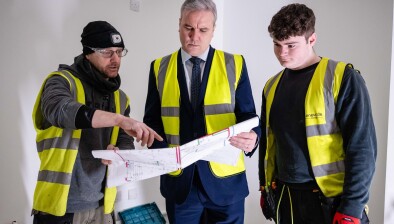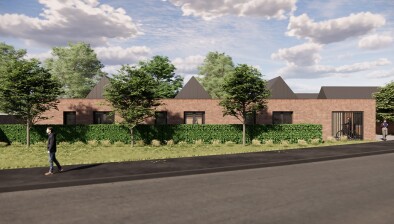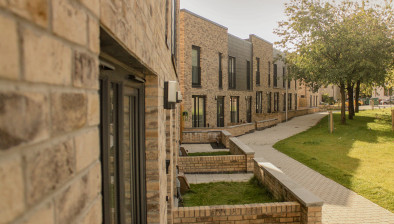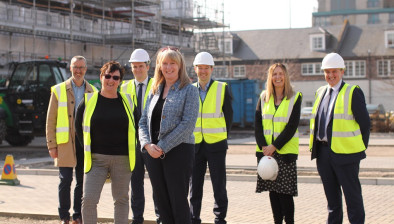Momentum grows for Enevate Homes as business grows by 118%

Recent high demand witnessed by Enevate Homes may bring hope that modular might soon deliver a significant proportion of new homes.
The company, which works with many housing associations across the UK, builds good-quality homes at rapid speed, using a greener approach than traditional construction methods and offering a long-term solution to the UK’s housing crisis. Shona Robinson, Deputy First Minister for Scotland recently visited the company’s 150,000 sq. ft factory in Wishaw to discuss the country’s plans for modular.
Enevate Homes, which was founded in 2016, has seen an influx of housing associations, including Greenwich and Dundee, approach it for factory tours and to learn about modular homes in recent months, signalling a start for plans to rapidly produce modular homes to provide low-cost “social housing” for people in need of a home.
The firm, which can produce an average-sized home in just 30 days at its factory, has seen turnover increase by 118% this year.
Gary Mayatt, managing director, said: “Despite the benefits of modular housing, many providers have been loss-making, with momentum stalling and leading to several companies falling into administration last year. However, the solution to the UK housing crisis appears to be gaining serious momentum since February this year with significant interest from ministers and housing associations.”
Enevate Homes has witnessed turnover jump from £3.9 million last year to £8.5m this year, an increase of 118%, with 250 homes being ordered in recent months. The company is working alongside the Ministry of Defence and the Career Transition Partnership to give military veterans the opportunity to retrain and join the rapidly expanding business. The company has also appointed a new finance director, Elaine New, and a new digital director, David Philp, to the management team, to help support the company as it continues to expand
“We have seen a significant uptake in modular homes — which is vital, especially if the UK and Kent is to tackle some of its biggest issues, such as an ageing workforce, a mismatch between the supply and demand of new housing and the urgent need to gear up the economy to meet net zero targets by 2050,” added Gary.
Savills’ Impacts Report predicts that the UK is set to see the strongest growth in modular housing in Europe, estimating that the number of homes delivered using modern methods of construction (MMC) will double to 20% by 2030.
UK MMC trade body, Make UK Modular, has calculated that the industry will be able to build 20,000 modular homes by 2025. This would equate to a fifth of the 100,000 annual shortfalls, following government targets of 300,000 new homes a year by 2025 (according to official figures, about 204,500 were built in the year to March 2022).
Gary said: “The UK currently delivers just 10% of new homes using modern methods. We expect this to significantly increase in the coming years as we continue to see a pick-up in momentum. In four years’ time, the modular industry will be a significant part of how we deliver homes in the UK.”
















